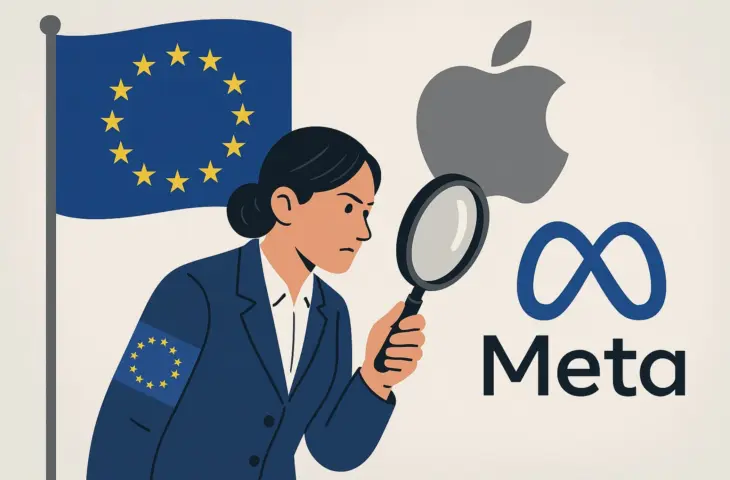Apple and Meta have violated the Digital Markets Act, and face fines of 500 and 200 million euros respectively. The EU’s decision on the case was initially postponed to avoid complicating trade talks with the United States .
The European Union has decided that Apple and Meta have violated the Digital Markets Act (DMA), the new law that requires large tech companies to engage in fair competition. EU Commissioner Teresa Ribera announced that the decision would follow in the coming weeks, but today the European Commission shares its decision. Apple faces a fine of 500 million euros, Meta 200 million euros.
The Wall Street Journal previously wrote that any punishment of Apple and Meta would not be immediate. The European Union is negotiating with the United States on import tariffs. In the midst of these negotiations, the EU did not want to add fuel to the fire by imposing sanctions on American companies. That line of thinking seems to have quickly gone up in smoke.
Political Tensions & Import Tariffs
The case is ongoing during increasing tensions between the US and the EU, partly caused by American trade measures. President Donald Trump and Vice President J.D. Vance believe that Europe should fall in line with the United States, the self-proclaimed AI leader. Meanwhile, some EU member states, including France, are advocating for stricter measures against American tech services.
The European Union wanted to use the 90-day ‘pause’ to negotiate better tariffs with the United States. During the negotiations, any measures against Meta and Apple that could be considered ‘hostile’ by Washington would be postponed, writes the Wall Street Journal.
read also
Europe’s digital identity crisis: “Regulation is not us-against-them”
Fines
The European Commission has been investigating since last March whether Apple and Meta have violated the rules. The DMA contains clear regulations aimed at curbing the dominance of large tech companies and providing more freedom of choice to consumers.
According to sources from Reuters, we already knew that both companies would receive fines. In theory, fines can amount to up to ten percent of annual turnover. Meta reacted strongly to the decision, stating that the EU is deliberately disadvantaging successful American companies, although it also faces headwinds in its own country, while European and Chinese competitors are not targeted. Apple, in turn, claims that “its ability to innovate in Europe is being slowed down”.
Apple Appeals
Apple is not planning to simply accept the fines. It is filing an appeal claiming that the DMA guidelines around “steering” are unclear. Apple makes it a sport to challenge European Union decisions that are against its interests. That provides no guarantee of making a fine disappear.
This article originally appeared on April 9 and has been updated with the latest information.
